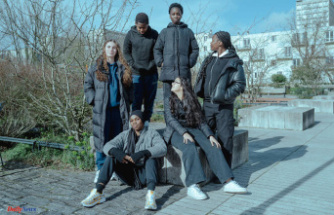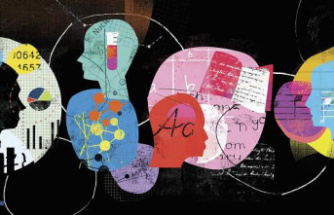Justin Voldman, a history teacher in Boston said that his students will spend the day writing about what happened and discussing the fragility of democracy.
Voldman, who is a Natick High School history teacher, said that he feels strongly that the topic needs to be discussed. He lives 15 miles (24 km) west of Boston. He said that he was the grandson of Holocaust survivors and it is "fair to draw parallels between Jan. 6th and the rise fascism."
Voldman stated that he is fortunate because "there are other parts of this country where... Voldman said he feels fortunate: "There are other parts of the country where...
Liz Wagner, a social studies teacher in eighth- and ninth grades in Des Moines, Iowa received an email last year from an administrator warning teachers to be cautious in framing the discussion.
She said, "I guess so, I don’t know if it’s the right word, maybe exhausted from the pandemic teaching years last year to understand how controversial that was going to be,"
Wagner referred to the events as an insurrection last year, and students asked questions. They were asked to read the definition of the word in the dictionary. She will likely show videos of protests to students and ask them for their thoughts.
Wagner stated, "This is part of what I must do to ensure I'm not upsetting anyone." Wagner said, "Last year, I was fighting COVID and trying to dodge COVID. Now, I'm fighting the culture war and I don't want it to happen."
Talking to students about Jan. 6 is becoming increasingly difficult with the increasing number of people shouting at school board meetings, and political action committees investing millions in races across the country to elect conservative candidates.
Now it is up to teachers to decide whether or not to teach their students about the events at the heart the country's division. The lessons can vary depending on where they live in the country.
Facing History and Ourselves is a non-profit that assists teachers in difficult lessons about subjects such as the Holocaust. They offer tips for students to discuss the topic with them after the riot.
It had 100,000 page views within 18 hours of its publication -- an amount Abby Weiss who oversees the development and maintenance of the nonprofit's teaching tools said was unprecedented.
Weiss stated that in the years that followed, many Republican governors and lawmakers have supported legislation to limit teaching material that examines the influence of race and racism on American politics, culture, and law.
She said, "Teachers feel anxious." "On the surface, the laws are vague, and it's hard to understand what's allowed and what isn’t," she said.
Because white supremacists were present at the halls of power during the riot, racial discussions can be difficult to avoid, Jinnie Spiegler (director of curriculum and training, Anti-Defamation League) said. She stated that the group was concerned about the insurrection being used as a recruiting tool, and she wrote a guide for teachers and parents to combat radicalization.
Spiegler stated, "To talk or discuss white supremacy, white supremacist extremists or their racist Confederate Flag, it's fraught because of so many reasons."
Anton Schulzki, the president and CEO of the National Council for the Social Studies said that students often bring up racial issues. He was discussing the events of last year when a William J. Palmer High School honors student in Colorado Springs stated, "You know, if these rioters were all Black they would all be arrested by now."
Three conservative school board candidates have been elected to the seat where Schulzki teaches. The district also disbanded its equity leadership team. A contract provides academic freedom protections to Schulzki, and he has been discussing the riot regularly over the past year.
He said that he felt "that there may have been some teachers who feel the best for me to ignore this because it's not in my best interest to put myself in danger because I have my bills to pay, my house to maintain, and my kids to send back to school."
Teachers concerned about New Hampshire's new restrictions on discussion of systemic racism have reached out to the American Federation of Teachers.
Randi Weingarten (union president, former teacher of social studies), said that she is hearing the same thing over and over that the laws passed in different locations are intended to chill discussion about current events. "I am very worried about what this means for teaching as we move closer to January 6th."
Paula Davis is a middle-school special education teacher in rural central Indiana. Her biggest concern is that teachers could use the discussion to indoctrinate their students. She will not discuss Jan. 6 in class. Instead, she will be focusing on math and English.
Davis, who is the regional chair of Moms for Liberty's Moms for Liberty chapter, said that teachers must address that topic from an objective perspective. Davis is also a member of Moms for Liberty. Moms for Liberty members have been vocal against vaccine mandates and critical racism. It should be done with no bias if it is impossible to do so.
Dylan Huisken, a middle school teacher in Missoula, Montana's Bonner, will not avoid the subject. He intends to use the anniversary as an opportunity to encourage his students to use their voices constructively, such as writing to legislators.
Huisken stated, "Not addressing attack" that it was to suggest that the civic ideals that we teach exist in a vacuum, don't have any practical application, and that civic knowledge is trivial.












